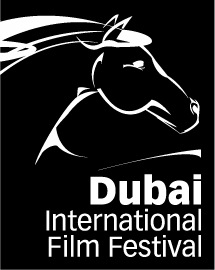
Cinema of Africa covers both the history and present of the making or screening of films on the African continent, and also refers to the persons involved in this form of audiovisual culture. It dates back to the early 20th century, when film reels were the primary cinematic technology in use. As there are more than 50 countries with audiovisual traditions, there is no one single 'African cinema'. Both historically and culturally, there are major regional differences between North African and sub-Saharan cinemas, and between the cinemas of different countries.

Ndombolo, also known as dombolo, is a genre of dance music originating in the Democratic Republic of the Congo. Derived from soukous in the 1990s, with fast-paced hip-swaying dance rhythms, often accompanied by upbeat, percussion-driven music, the style became widespread in the mid-1990s and the subsequent decade, dominating dancefloors in central, eastern, and western Africa. It inspired West African popular music, coupé-décalé, Kuduro, and East African dance music.

The Dubai International Film Festival was the largest film festival in the Arab region. With particular emphasis on showcasing Arab, Asian, and African cinema, it also helped to develop industry and talent in the region. It was held in Dubai in the United Arab Emirates.

Raoul Peck is a Haitian filmmaker of both documentary and feature films. He is known for using historical, political, and personal characters to tackle and recount societal issues and historical events. Peck was Haiti's Minister of Culture from 1996 to September 1997. His film I Am Not Your Negro (2016), about the life of James Baldwin and race relations in the United States, was nominated for an Oscar in January 2017 and won a César Award in France. Peck's HBO documentary miniseries, Exterminate All the Brutes (2021), received a Peabody Award.
Black music, des chaînes de fer aux chaînes d'or is a French 2008 documentary film about African-American music.
Un Rêve d’indépendance is a 1998 documentary film from the Democratic Republic of the Congo by Monique Mbeka Phoba.
Mwezé Ngangura is a film director from the Democratic Republic of the Congo (DRC).
Monique Mbeka Phoba is a filmmaker whose family comes from the Democratic Republic of the Congo (DRC) but who now lives in Benin. Her films have won a number of awards.
Lumumba, la mort du prophète is a 1990 documentary film by Haitian director Raoul Peck. It covers the death of Patrice Lumumba, the first prime minister of Zaire, now the Democratic Republic of the Congo. The film was critically acclaimed and won a number of awards. In July 2021, the film was shown in the Cannes Classics section at the 2021 Cannes Film Festival.

Gulîstan, Land of Roses is a 2016 feature-length documentary film about women guerillas in a Kurdistan Workers' Party (PKK) Free Women's Unit, in combat against the Islamic State of Iraq and the Levant (ISIL), directed by the Kurdish Montreal filmmaker Zaynê Akyol. Shot in Iraqi Kurdistan, the film is co-produced by Montreal's Périphéria Productions, Germany's MitosFilm and the National Film Board of Canada.
Florence Ayisi was born in Kumba in Cameroon on 22 July 1962). She is an academic and filmmaker. Her film Sisters in Law won more than 27 awards and was short-listed for an Academy Award nomination in 2006. She won the UK Film Council Breakthrough Brits Award for Film Talent in 2008. Since 2000 she has taught film at the University of South Wales.
Oumy Ndour is a filmmaker and journalist from Senegal. She is the co-founder of Ladies Club, an online community and networking platform for women.
Lula Ali Ismaïl is a Djibouti-Canadian film director and screenwriter. She is the first woman from Djibouti to produce a film, earning her the nickname of "the first lady of the Djibouti cinema." The directed the 27-minute fiction short Laan (2011). The film was screened at the 2012 Montreal Vues d'Afrique festival, and in 2013 at FESPACO. In 2014 she started working on a feature film, Dhalinyaro, co-written with Alexandra Ramniceanu and Marc Wels. The film, Djibouti's first feature film, premiered in July 2017.

Jean-Marie Teno is a Cameroonian film director and filmmaker, "one of Africa's most prolific filmmakers". His films address censorship, human rights violations, globalization, and the effects of colonialism. Teno has made films in many different forms but favors making documentaries. In an interview when asked about his favor style of film to make he responded, "documentary because when you do fiction, people think it's not true. When it's the documentary, they are embarrassed, embarrassed".
The Central African Republic is one of the world's poorest countries and the film industry is correspondingly small. The first film made in CAR appears to have been Les enfants de la danse, a short French-made ethnographic documentary of 1945. Joseph Akouissone was the first Central African to make a film in the country, with his 1981 documentary Un homme est un homme; he was followed by the documentaries made in the 1980s by Léonie Yangba Zowe. Since then a series of ongoing conflicts and economic crises have severely limited the potential growth of film-making in the country. The first feature-length drama made in the country was Le silence de la forêt, a 2003 CAR-Gabon-Cameroon co-production about the Biaka people.
Angela Aquereburu is a Togolese screenwriter, film producer and film director.
Lova Nantenaina is a Malagasy film director.
Marina Niava is an Ivorian film director, film producer, and writer.
Dieudo Hamadi is a documentary filmmaker from the Democratic Republic of the Congo.
Extra Musica is a Congolese rumba band formed in Ouenzé, Brazzaville, in August 1993. The band was established by Roga-Roga, Espé Bass, Kila Mbongo, Durell Loemba, Guy-Guy Fall, Ramatoulaye Ngolali, and Quentin Moyascko, who initially met at the Sainte Thérèse church in Ouenzé, being neighbors and classmates. Prior to forming Extra Musica, several members had been associated with the Cogiex Stars ensemble but seceded subsequent to facing punitive repercussions for attempting to infuse new ideas.






